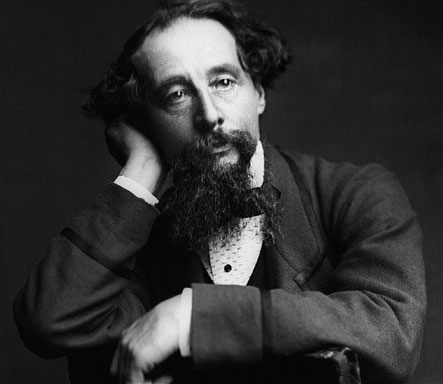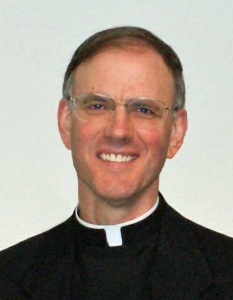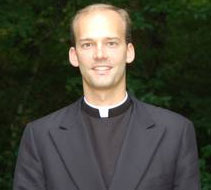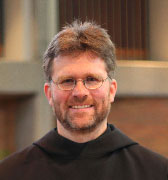 Episode 4- Â The Holy Rule of St. Benedict: A Spiritual Path for Today’s World with Fr. Mauritius Wilde O.S.B., PhD.
Episode 4- Â The Holy Rule of St. Benedict: A Spiritual Path for Today’s World with Fr. Mauritius Wilde O.S.B., PhD.
In place of confusing life patterns, the security of a healthy balance
[powerpress]
From the Holy Rule of St. Benedict:
CHAPTER XLI
From holy Easter till Pentecost let the brethren dine at the sixth hour and take supper in the evening. From Pentecost on, however, during the whole summer, if the monks have no work in the fields and the excess of the heat doth not interfere, let them fast on Wednesday and Friday until the ninth hour; but on the other days let them dine at the sixth hour. This sixth hour for dinner is to be continued, if they have work in the fields or the heat of the summer is great. Let the Abbot provide for this; and so let him manage and adapt everything that souls may be saved, and that what the brethren do, they may do without having a reasonable cause to murmur. From the ides of September until the beginning of Lent let them always dine at the ninth hour. During Lent, however, until Easter, let them dine in the evening. But let this evening hour be so arranged that they will not need lamp-light during their meal; but let everything be finished whilst it is still day. But at all times let the hour of meals, whether for dinner or for supper, be so arranged that everything is done by daylight.
Father Mauritius Wilde, OSB, Ph.D., did his philosophical, theological and doctoral studies in Europe. He is the author of several books and directs retreats regularly. He serves as Prior of our monastery in Schuyler.
 For more information about the ministry of the the Missionary Benedictines of Christ the King Priory in Schuyler, Nebraska visit here:
For more information about the ministry of the the Missionary Benedictines of Christ the King Priory in Schuyler, Nebraska visit here:
Tags: confusing life patterns, Holy Rule of St. Benedict
This entry was posted on Wednesday, September 11th, 2013 at 7:28 pm
You can follow any responses to this entry through the RSS 2.0 feed.
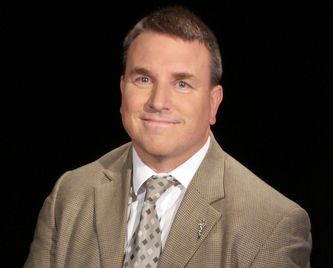 Episode 16 – Great Works in Western Literature with Joseph Pearce – Charles Dickens and “A Tale of Two Cities”
Episode 16 – Great Works in Western Literature with Joseph Pearce – Charles Dickens and “A Tale of Two Cities”
[powerpress]
In this exciting novel set during the French Revolution, Charles Dickens expresses sympathy for the downtrodden poor and their outrage at the self-indulgent aristocracy. But Dickens is no friend of the vengeful mob that storms the Bastille and cheers the guillotine. As with all of his stories, his passion is for the unforgettable and unrepeatable individuals he creates.
The sorrows of the suffering masses, their demands for justice, and the indiscriminate fury they unleash take flesh in Madame Defarge, while the self-sacrifice that is the truest means of atonement and rebirth manifests in the unlikely hero Sydney Carton. In A Tale of Two Cities, humanity does not show its best side in the mean streets of Paris or even London, but in the intimate circle of loyal friends that gathers around the honorable Doctor Manette and his lovely daughter, Lucie.
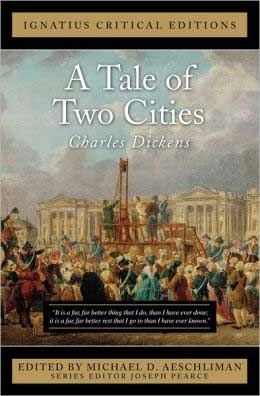 Based on the Ignatius Critical Edition, this series examines, from the Judeo-Christian perspective, the life, the times, and influence of authors of great works in literature .
Based on the Ignatius Critical Edition, this series examines, from the Judeo-Christian perspective, the life, the times, and influence of authors of great works in literature .
Joseph Pearce is currently the Writer-in-Residence and Visiting Fellow at Thomas More College of Liberal Arts in Merrimack, New Hampshire. He is also Visiting Scholar at Mount Royal Academy in Sunapee, New Hampshire. He is also Visiting Scholar at Mount Royal Academy in Sunapee, New Hampshire. He is  co-editor of the Saint Austin Review (or StAR), an international review of Christian culture, literature, and ideas published in England (Family Publications) and the United States (Sapientia Press). He is also the author of many books, including literary biographies of Solzhenitsyn, J. R. R. Tolkien, C. S. Lewis, G. K. Chesterton, and Oscar Wilde.
To learn more about the authors and titles available in the Ignatius Critical Editions
Tags: charles dickens, Doctor Manette, ignatius press, joseph pearce, Madame Defarge, Sydney Carton
This entry was posted on Tuesday, September 10th, 2013 at 10:17 am
You can follow any responses to this entry through the RSS 2.0 feed.
Episode 2 – Regnum Novum: Bringing forth the New Evangelization through Catholic Social Teaching with Omar Guiterrez - Value # 2 – Communion not opposition
- Value # 2 – Communion not opposition
[powerpress]
From episode 2. Â Â Â Communion not opposition
As I say in some of my posts, there is a spirit of opposition in a good deal of the social work that happens today. The corruption of workers’ unions is one of the great tragedies of our day. Imagine what great work they could do on top of the many achievements they’ve made. But they do not universally do great work because they are caught up in the oppositionist paradigms that make integral human development impossible.
True social justice requires that we drop these paradigms of opposition: management vs. labor; bourgeois vs. proletariat; state vs. individual. We own the great Catholic both/and. It applies to the Social Teaching of the Catholic Church more than ever.
We live at a very special time. The confluence of many things has brought forth the clear need to be able to articulate the Social Teaching of the Catholic Church in a way that is accessible and applicable. This is not to be an effort where high-minded theories are to be bandied about. Rather, this is a time of opportunity wherein we can apply the Social Doctrine to the concrete so as to bring about a New Kingdom, a Revolution. – Omar G.Â
Discerning Hearts is blessed to present Omar F. A. Guiterrez, M.A. , Special Assistant  to Archbishop George Lucas of the Archdiocese of Omaha, in a groundbreaking series which breaks open the heart of Catholic Social Doctrine.
Tags: New Kingdom, social doctrine, social work, work
This entry was posted on Tuesday, September 10th, 2013 at 8:18 am
You can follow any responses to this entry through the RSS 2.0 feed.
Episode 5 -Listening For Truth–  The Reality of Our Conscience.  What it is and what it isn’t.  The importance of proper formation…through the sacramental life, the Catechism of the Church and Sacred Scripture.  “Follow the Truth” is the beginning of the conversation, not “follow your conscience” in order to make the sacred decision.  Not to be passive but teachable is the goal.  The Marian deposition is the the model for moral formation.  Conscience is the judgement of the mind as it listens to the voice of Christ through the lives of the saints, the sacraments, the Catechism and Scripture in prayer.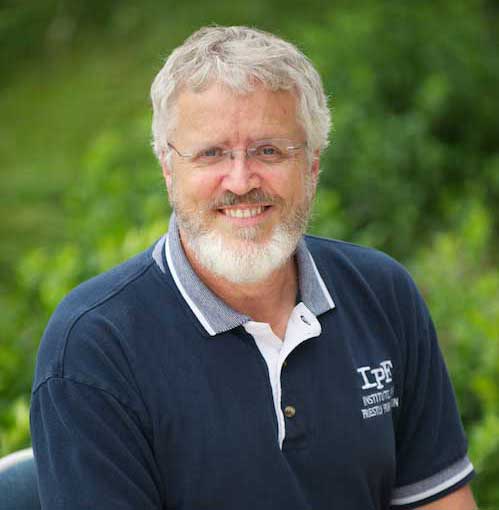
[powerpress]
Deacon James Keating, PhD., the director of Theological Formation for the Institute for Priestly Formation, located at Creighton University, in Omaha, is making available to â€Discerning Hearts†and all who listen, his series of programs entitled “Listening For Truthâ€.
 Listening for Truth leads men and women in a search for a fuller experience of God that begins in prayer, grows in the rediscovery of our spiritual being, and grounds itself in the truth of Jesus Christ. A presentation of the Christian life as an engagement of the whole person — body, mind, and soul — in the challenge of daily living.
Listening for Truth leads men and women in a search for a fuller experience of God that begins in prayer, grows in the rediscovery of our spiritual being, and grounds itself in the truth of Jesus Christ. A presentation of the Christian life as an engagement of the whole person — body, mind, and soul — in the challenge of daily living.
For more information on the “Institute of Priestly Formation†and for other material available by Deacon Keating, just click here
Don’t forget to pickup a copy of “Communion with Christ†, it is one of the best audio sets on prayer…ever!
Check out Deacon Keating’s “Discerning Heart†page
Tags: conscience, creighton university, Deacon James Keating, prayer
This entry was posted on Monday, September 9th, 2013 at 8:40 am
You can follow any responses to this entry through the RSS 2.0 feed.
Church Authority to Interpret the Bible
[powerpress]
Many say that the Bible alone is all we need to know God’s Truth. But just look at all of the questions that
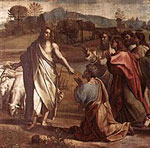 divide Christians today because of differing views over what the Bible teaches: Should infants be baptized?, can I lose my salvation?, or what about the many moral issues that we face?
divide Christians today because of differing views over what the Bible teaches: Should infants be baptized?, can I lose my salvation?, or what about the many moral issues that we face?
Our Lord said that a house divided cannot stand, and He never intended for His followers to interpret the Bible privately (2 Pet. 1:20). Jesus left us a visible Church whose leaders have authority to teach and govern God’s people.
In Matthew 18, Jesus said that insurmountable debates should be taken to the Church for resolution.1 For those that understand this and still refuse to listen to the Church, Jesus has a stern warning. Of course, to follow Jesus’ teaching on this necessarily requires a single Church that is organized and consistent.
For 2,000 years the Catholic Church has been fulfilling this role in order that the Body of Christ might experience the harmony of being truly unified in heart and mind. Small wonder St. Augustine said, “I would not believe in the Gospel myself if the authority of the Catholic Church did not influence me to do so.” 2
1 – Mt. 18:15-18
2 – Against the letter of Mani, 5,6, 397 A.D.
Tags: catholic apologetics, catholic church, Church, church authority, Faith Check, heart, Jesus
This entry was posted on Monday, September 9th, 2013 at 6:54 am
You can follow any responses to this entry through the RSS 2.0 feed.
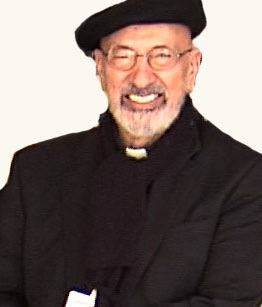 Show 45 ” Building a Kingdom of Love” –  “Anyone of you who does not renounce all his possessions
Show 45 ” Building a Kingdom of Love” –  “Anyone of you who does not renounce all his possessions
cannot be my disciple.”
[powerpress]
Msgr. Esseff reflects on the teaching of Jesus:
Gospel
LK 14:25-33
Great crowds were traveling with Jesus,
and he turned and addressed them,
“If anyone comes to me without hating his father and mother,
wife and children, brothers and sisters,
and even his own life,
he cannot be my disciple.
Whoever does not carry his own cross and come after me
cannot be my disciple.
Which of you wishing to construct a tower
does not first sit down and calculate the cost
to see if there is enough for its completion?
Otherwise, after laying the foundation
and finding himself unable to finish the work
the onlookers should laugh at him and say,
‘This one began to build but did not have the resources to finish.’
Or what king marching into battle would not first sit down
and decide whether with ten thousand troops
he can successfully oppose another king
advancing upon him with twenty thousand troops?
But if not, while he is still far away,
he will send a delegation to ask for peace terms.
In the same way,
anyone of you who does not renounce all his possessions
cannot be my disciple.â€
Msgr. John A. Esseff is a Roman Catholic priest in the Diocese of Scranton. He was ordained on May 30th 1953, by the late Bishop William J. Hafey, D.D. at St. Peter’s Cathedral in Scranton, PA. Msgr. Esseff served a retreat director and confessor to Blessed Mother Teresa.   He continues to offer direction and retreats for the sisters of the missionaries of charity around the world. Msgr. Esseff encountered St.  Padre Pio,  who would become a spiritual father to him. He has lived in areas around the world,  serving  in the Pontifical missions, a Catholic organization established by Bl. Pope John Paul II to bring the Good News to the world especially to the poor. Msgr. Esseff assisted the founders of the Institute for Priestly Formation and continues to serve as a spiritual director for the Institute. He continues to  serve as a retreat leader and director to bishops, priests and sisters and seminarians and other religious leaders around the world. Â
To obtain a copy of Msgr. Esseff’s book byvisiting here
Be sure to visit Msgr. Esseff’s website “Building a Kingdom of  Love”
Tags: father, Good News, LK, retreat
This entry was posted on Monday, September 9th, 2013 at 6:40 am
You can follow any responses to this entry through the RSS 2.0 feed.
Dr. Matthew Bunson discusses the life, times and work of  St. Athanasius of Alexandria
[powerpress]
For more on St. Athanasius of Alexandria and his teachings
AthanasiusÂ
-Â On the Incarnation of the Word
-Â Deposition of Arius
-Â Statement of Faith
-Â On Luke 10:22 (Matthew 11:27)
-Â Circular Letter
-Â Apologia Contra Arianos
-Â De Decretis
-Â De Sententia Dionysii
-Â Vita S. Antoni (Life of St. Anthony)
-Â Ad Episcopus Aegypti et Libyae
-Â Apologia ad Constantium
-Â Apologia de Fuga
-Â Historia Arianorum
-Â Four Discourses Against the Arians
-Â De Synodis
-Â Tomus ad Antiochenos
-Â Ad Afros Epistola Synodica
-Â Historia Acephala
-Â Letters
Athanasius was undoubtedly one of the most important and revered early Church Fathers. But this great Saint was above all the impassioned theologian of the Incarnation of the Logos, the Word of God who – as the Prologue of the fourth Gospel says – “became flesh and dwelt among us” (Jn 1: 14).
For this very reason Athanasius was also the most important and tenacious adversary of the Arian heresy, which at that time threatened faith in Christ, reduced to a creature “halfway” between God and man, according to a recurring tendency in history which we also see manifested today in various forms.
In all likelihood Athanasius was born in Alexandria, Egypt, in about the year 300 A.D. He received a good education before becoming a deacon and secretary to the Bishop of Alexandria, the great Egyptian metropolis. As a close collaborator of his Bishop, the young cleric took part with him in the Council of Nicaea, the first Ecumenical Council, convoked by the Emperor Constantine in May 325 A.D. to ensure Church unity. The Nicene Fathers were thus able to address various issues and primarily the serious problem that had arisen a few years earlier from the preaching of the Alexandrian priest, Arius.
With his theory, Arius threatened authentic faith in Christ, declaring that the Logos was not a true God but a created God, a creature “halfway” between God and man who hence remained for ever inaccessible to us. The Bishops gathered in Nicaea responded by developing and establishing the “Symbol of faith” [“Creed”] which, completed later at the First Council of Constantinople, has endured in the traditions of various Christian denominations and in the liturgy as the Niceno-Constantinopolitan Creed.
In this fundamental text – which expresses the faith of the undivided Church and which we also recite today, every Sunday, in the Eucharistic celebration – the Greek term homooúsiosis featured, in Latin consubstantialis: it means that the Son, the Logos, is “of the same substance” as the Father, he is God of God, he is his substance. Thus, the full divinity of the Son, which was denied by the Arians, was brought into the limelight.
For more visit Vatican.va
Dr. Matthew Bunson, Senior Fellow of the St. Paul Center for Biblical Theology, is one of the United States’ leading authorities on the papacy and the Church.
His books include: The Encyclopedia of Catholic History; The Encyclopedia of Saints; Papal Wisdom; All Shall Be Well; Encyclopedia of the Roman Empire; and The Angelic Doctor: The Life and World of St. Thomas Aquinas; The Pope Encyclopedia; We Have a Pope! Benedict XVI, the first Catholic biography of the Holy Father in the English language; the Encyclopedia of U.S. Catholic History; Pope Francis. Â His also the editor of OSV’s “The Catholic Answer” magazine.
Tags: Church, church fathers, faith, matthew bunson, work
This entry was posted on Friday, September 6th, 2013 at 11:15 am
You can follow any responses to this entry through the RSS 2.0 feed.
Join Teresa Monaghen, of Pro Sanctity, as she offers a “Personal Plan for Holiness”. Listen along with these short, but beautiful meditations which encourage us to continue on our journey as “saints in the making”!
beautiful meditations which encourage us to continue on our journey as “saints in the making”!
[powerpress]
Learn more about Pro Sanctity at www.prosanctity.org
Tags: Join Teresa Monaghen, meditations, personal plan for holiness, pro sanctity, saints, teresa monaghen
This entry was posted on Friday, September 6th, 2013 at 12:08 am
You can follow any responses to this entry through the RSS 2.0 feed.
In the persons who are going on intensely cleansing their sins and rising from good to better in the service of God our Lord, it is the method contrary to that in the first Rule, for then it is the way of the evil spirit to bite, sadden and put obstacles, disquieting with false reasons, that one may not go on; and it is proper to the good to give courage and strength, consolations, tears, inspirations and quiet, easing, and putting away all obstacles, that one may go on in well doing.
.[powerpress]
The Discernment of  Spirits: Setting the Captives Free – Serves as an introduction to the coming series and the Spiritual Exercises of St. Igantius of Loyola
Father Timothy M. Gallagher, O.M.V., was ordained in 1979 as a member of the Oblates of the Virgin Mary, a religious community dedicated to retreats and spiritual formation according to the Spiritual Exercises of St. Ignatius. Â Fr. Gallagher is featured on the EWTN series “Living the Discerning Life: Â The Spiritual Teachings of St. Ignatius of Loyola”.
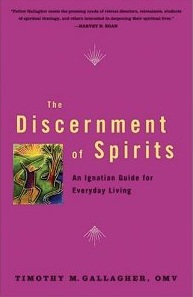 “The Discernment of Spirits: Setting the Captives Free” series is based on Fr. Gallagher’s book “Discern
“The Discernment of Spirits: Setting the Captives Free” series is based on Fr. Gallagher’s book “Discern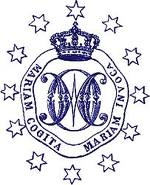 ment of Spirits” published by Crossroads Books.
ment of Spirits” published by Crossroads Books.
.
For more information on the work of Fr. Timothy Gallagher check out his website
.
For the other episodes in this series check out Fr. Timothy Gallagher’s “Discerning Hearts†page
Tags: evil, ewtn, spiritual formation, work
This entry was posted on Thursday, September 5th, 2013 at 8:34 am
You can follow any responses to this entry through the RSS 2.0 feed.
 FG#8- Interior Freedom episode 8 – Fountains of Grace: reflections on contemporary spiritual classics with Donna Garrett
FG#8- Interior Freedom episode 8 – Fountains of Grace: reflections on contemporary spiritual classics with Donna Garrett
Join host Donna Garrett, with Fr. Daniel Brandenburg, LC, as they discuss the spiritual classic “Interior Freedom” by Fr.  Jacques Philippe  a priest of  Communaute des Beatitudes, an international association of the faithful of Pontifical Right founded in France in 1973.  The members of the Community, which has a contemplative vocation based on Carmelite spirituality, are actively engaged in the service of the poor and the proclamation of the Gospel.
[powerpress]
Discussed in this episode, among other topics, Â from “Interior Freedom” page 112
“Instead of following the impulses of the Spirit, people give themselves up, under a pretext of freedom, to their passions to selfishness and sin and sin in all its forms: immorality, impurity, licentiousness, idolatry, sorcery, enmity, strife, jealousy, anger, selfishness, dissension, party spirit, envy, drunkenness carousing and the like. St Paul reminds us of a classic teaching worth repeating in these confused times; licentiousness is not freedom. It s slavery in which people are trapped by what is most superficial in humanity selfish desires, fears weaknesses and so on. We must wage an unceasing fight against the tendencies described by St Paul and must remain permanently open to the healing graces that come from the Cross of Christ. Then we become truly capable of accomplishing good.”
For other episodes in the this series click here “Fountains of Grace w/Donna Garrett”

You can find “Interior Freedom” here
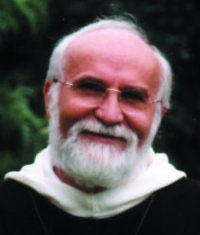
Fr. Jacques Philippe
Tags: Donna Garrett, freedom, Interior Freedom, reflections
This entry was posted on Thursday, September 5th, 2013 at 6:42 am
You can follow any responses to this entry through the RSS 2.0 feed.
There is an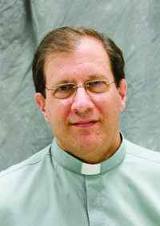 endless collection of reflections on the life, teachings, and work of Blessed Mother Teresa of Calcutta…all wonderful and worth exploration. One however stands out for me, and that is the writings of Fr. Joseph Langford, co-founder with Mother Teresa of the Missionaries of Charity Fathers. In particular, “Mother Teresa: In the Shadow of Our Lady”
endless collection of reflections on the life, teachings, and work of Blessed Mother Teresa of Calcutta…all wonderful and worth exploration. One however stands out for me, and that is the writings of Fr. Joseph Langford, co-founder with Mother Teresa of the Missionaries of Charity Fathers. In particular, “Mother Teresa: In the Shadow of Our Lady”
[powerpress]Join Bruce and I as we talk with Fr. Langford about Mother Teresa and Our Lady
“Stay very close to Our Lady. If you do this, you can do great things for God and the good of people.” –Mother Teresa of Calcutta
As it was for Mother Teresa, so it can be for the rest of us. By standing close to Our Lady we can find the grace and courage to overcome our own personal trials and crosses. Summon the same powerful presence and aid of Our Lady by following the example of Mother Teresa. From dawn to dusk, decade to decade, Mother Teresa’s life had been spent, in every sense of the word, in the shadow of Our Lady. Our Lady helps us, as Mother Teresa found in her vision, to become contemplatives at the foot of the cross–to discover God’s presence and love, even in the midst of our trials and dark nights. Nothing was impossible for Mother Teresa while she clung to Our Lady, and as Mother Teresa tells us, “nothing is impossible for all who call Mary mother.”
“Sitting with Mother Teresa, watching her tend to the sick and the dying, feeling the aura of holiness around her person, seeing her bent in prayer, lost in God–how often I asked myself if I was not
seeing something of Our Lady, experiencing a glimpse of the Virgin of Nazareth” –-Author and co-founder of Mother Teresa’s priests’ community, Joseph Langford, MC
This is a very special book, check it out!
This entry was posted on Thursday, September 5th, 2013 at 12:14 am
You can follow any responses to this entry through the RSS 2.0 feed.
Episode 1 – Regnum Novum: Bringing forth the New Evangelization through Catholic Social Teaching with Omar Guiterrez – Introduction and Value # 1 – Jesus Christ
– Introduction and Value # 1 – Jesus Christ
[powerpress]
From episode … 1.     Jesus Christ
You may not believe how many advocates of social justice are only too ready to chuck Jesus out the window in order to get you to buy their plan. One such program of which I’m familiar actually includes materials that deny the divinity of Christ, several times, and deny the salvific work of the cross. As Pope Paul VI and Pope Benedict XVI have said, the Social Doctrine is evangelization. If it is not rooted in the truth, then it can be manipulated to mean whatever one wants it to mean. The truth is quite simply, Jesus Christ who, as Gaudium et spes states, reveals man to himself. The Social Doctrine and the work of charity must stem from an intimate knowledge of Jesus Christ so that they might serve the whole person and point back to Christ.
We live at a very special time. The confluence of many things has brought forth the clear need to be able to articulate the Social Teaching of the Catholic Church in a way that is accessible and applicable. This is not to be an effort where high-minded theories are to be bandied about. Rather, this is a time of opportunity wherein we can apply the Social Doctrine to the concrete so as to bring about a New Kingdom, a Revolution. – Omar G.Â
Discerning Hearts is blessed to present Omar F. A. Guiterrez, M.A. , Special Assistant  to Archbishop George Lucas of the Archdiocese of Omaha, in a groundbreaking series which breaks open the heart of Catholic Social Doctrine.
Tags: jesus christ, social doctrine, truth, work
This entry was posted on Wednesday, September 4th, 2013 at 8:17 am
You can follow any responses to this entry through the RSS 2.0 feed.
Holy Eucharist
[powerpress]
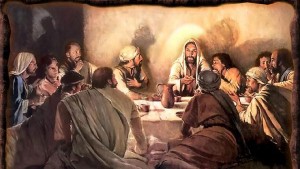 On this faith check let’s talk about the Holy Eucharist.
On this faith check let’s talk about the Holy Eucharist.
Catholics believe that the bread and wine are more than just symbolic reminders. By the power of God working through the priest they are transformed into Christ’s Body and Blood.
Our Lord taught, “Unless you eat the flesh of the Son of Man and drink His blood you do not have life within you.â€1 The Jews scoffed at this and asked, “How can He give us his flesh to eat.â€Â Even His disciples said this was a hard saying and many stopped following Him.
Now when genuine misunderstandings occurred, Jesus corrected His listeners. But Jesus meant what He said, and did not back down: “[M]y flesh is food indeed and my blood is drink indeed … He who eats my flesh and drinks my blood has eternal life, and I will raise him up at the last day.â€
For 2,000 years the Eucharist has been the heart of the Catholic Faith. In fact, the early Christians said, “without the Eucharist we cannot live,†preferring to risk their lives rather than miss Mass. Today He invites each one of us to receive His very flesh and blood.
1-Â All citations from John 6:50 – 58
Tags: catholic apologetics, Catholic Faith, eternal life, eucharist, faith, holy eucharist
This entry was posted on Wednesday, September 4th, 2013 at 12:19 am
You can follow any responses to this entry through the RSS 2.0 feed.
 Episode 15 – Great Works in Western Literature with Joseph Pearce – St. Augustine
Episode 15 – Great Works in Western Literature with Joseph Pearce – St. Augustine
[powerpress]
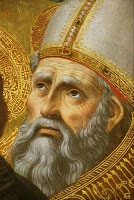 The Confessions of Saint Augustine is considered one of the greatest Christian classics of all time. It is an extended poetic, passionate, intimate prayer that Augustine wrote as an autobiography sometime after his conversion, to confess his sins and proclaim God’s goodness. Just as his first hearers were captivated by his powerful conversion story, so also have many millions been over the following sixteen centuries. His experience of God speaks to us across time with little need of transpositions.
The Confessions of Saint Augustine is considered one of the greatest Christian classics of all time. It is an extended poetic, passionate, intimate prayer that Augustine wrote as an autobiography sometime after his conversion, to confess his sins and proclaim God’s goodness. Just as his first hearers were captivated by his powerful conversion story, so also have many millions been over the following sixteen centuries. His experience of God speaks to us across time with little need of transpositions.
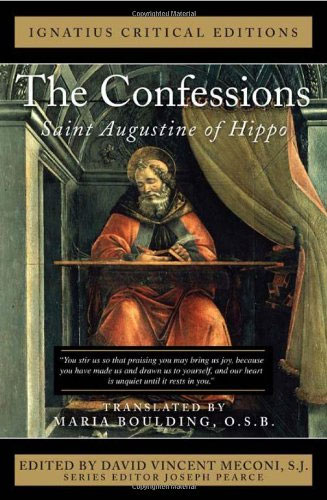 Based on the Ignatius Critical Edition, this series examines, from the Judeo-Christian perspective, the life, the times, and influence of authors of great works in literature .
Based on the Ignatius Critical Edition, this series examines, from the Judeo-Christian perspective, the life, the times, and influence of authors of great works in literature .
Joseph Pearce is currently the Writer-in-Residence and Visiting Fellow at Thomas More College of Liberal Arts in Merrimack, New Hampshire. He is also Visiting Scholar at Mount Royal Academy in Sunapee, New Hampshire. He is also Visiting Scholar at Mount Royal Academy in Sunapee, New Hampshire. He is  co-editor of the Saint Austin Review (or StAR), an international review of Christian culture, literature, and ideas published in England (Family Publications) and the United States (Sapientia Press). He is also the author of many books, including literary biographies of Solzhenitsyn, J. R. R. Tolkien, C. S. Lewis, G. K. Chesterton, and Oscar Wilde.
To learn more about the authors and titles available in the Ignatius Critical Editions
Tags: catholic, catholic podcast, catholic prayer, cathollc spirituality, conversion, joseph pearce, New Hampshire, prayer
This entry was posted on Tuesday, September 3rd, 2013 at 8:28 am
You can follow any responses to this entry through the RSS 2.0 feed.
 “The Virtues We Need Again:Â 21 Life Lessons from the Great Books of the West” is a gem! Â I love a good book on the virtues. Â I love a good book on great books. Â And when a work comes along which contains both elements and is written with joy and enthusiasm for the subject…well, I can’t help but find myself in a reader’s paradise. Â What a delight to talk with Dr. Kalpakgian about some of the topics found in this work. Â Engaging the heart and the mind, this is a must have book for the discerning reader.
“The Virtues We Need Again:Â 21 Life Lessons from the Great Books of the West” is a gem! Â I love a good book on the virtues. Â I love a good book on great books. Â And when a work comes along which contains both elements and is written with joy and enthusiasm for the subject…well, I can’t help but find myself in a reader’s paradise. Â What a delight to talk with Dr. Kalpakgian about some of the topics found in this work. Â Engaging the heart and the mind, this is a must have book for the discerning reader.
[powerpress]
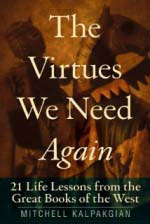 You can find the book here
You can find the book here
“[Mitchell Kalpakgian] always delights the reader with a luminous wisdom and a literary flourish that enlightens even as it entertains.” —Joseph Pearce, author, Tolkien: Man, Myth and Literary Life
“Reading Dr. Kalpakgian is like being served an exquisite new wine made from grapes in your own backyard or uncovering an ancient and mysterious map that happens to be of your own country. It is a discovery, a delight, and an adventure among things that are right in front of you. It is the excitement of tradition, the love of family, the joy of literature, and the realization that this vale of tears has been touched by a good and beautiful God who loves us.” —John M. DeJak, Dean and Latin Teacher, Saint Agnes School, St. Paul MN & Director, The Wanderer Forum Foundation
This entry was posted on Tuesday, September 3rd, 2013 at 8:11 am
You can follow any responses to this entry through the RSS 2.0 feed.

